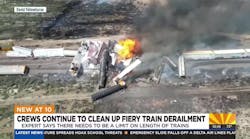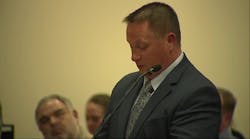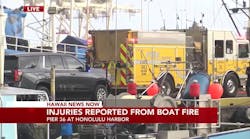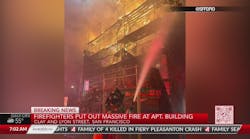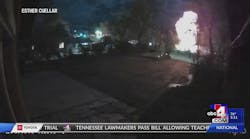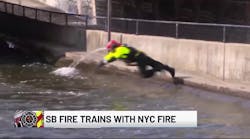Every leader in history did not get there on their own. They all had help along the way. If it was a trusted advisor, a diligent worker or a dedicated staff, they all had some kind of help. What is important is how few leaders recognize the efforts of those around them. We have spoke at length about team building and finding good people and understanding their value. Then why is it so hard to say thank you?
I believe the reason is due to the fact that saying thank you requires a certain amount of humility. You must realize that you didn't do it alone. For powerful leaders this is often a difficult concept. Your ambitions are your ambitions, if not shared and embraced by others they are strictly your ambitions and will never come to fruition.
Powerful people often have inflated egos that prevent them from realizing the humility required to say thank you. Let's look at an example.
No mayor or governor who took credit for reducing crime ever made it happen because they were in the state house or governor's mansion. I am not saying he or she did not have anything to do with it, but let's look at it more closely. What really reduces crime? More cops! The mayor may have put it in the budget to hire more patrol officers, or maybe the request came from the police chief or commissioner. The city council didn't cut the budget. The police department recruited the best candidates for the job. There was some testing procedure to select the best from the candidates. The instructors at the training academy turned civilians into professional police officers. The sergeants and senior officers who trained them and gave them the "street smarts" to safely perform their dangerous duty. They were put on the street and crime went down. So who reduced crime and who should be saying thank you to whom?
This is just a simple example of how absurd it becomes when people take credit for something they had little influence over in the big picture.
So how do you say "thank you?" For civil servants a raise is always nice. Improve working conditions or new equipment can be helpful. But is a shinny new fire truck or new police car going to make me feel better if I feel the department doesn't care?
Letters of support or favorable evaluations may have some merit. If that is the mechanism your organization uses, what does it give the employee? Does it just amount to just another "atta boy?"
Saying thank you and rewarding exceptional behavior are intertwined. Rewards should meet the level of the request. A special request requires a special reward. If you are going to hold people accountable for their actions they should be rewarded accordingly. You must let them know the "little extra" is noticed.
Rewards should not be a bribe. The cost will rise faster than the national debt. There should never be a quid pro quo.
Rewards should be timely. The promise of a reward is no reward at all. Rewards must be consistent. A reward given to one should equal one given to another for similar work. This will reduce any resentment in future rewards. Rewards should be personal. If you can find something that appeals to the person it shows an extra level of gratitude.
People need to feel that their work is appreciated, especially in the emergency services were a lot of what they do, they would have done anyway, but it is nice to know someone cared. A little thank you goes a long way.
I remember working with the Rockland County Fire Chiefs Association on a seminar many years ago. I don't remember who the featured speaker was, my appologies if he is reading this. He was going to be conducting a full-day seminar on leadership. What I do remember and what has stuck with me after all these years was this story. We had come back from the first coffee break and he asked the assembled crowd, "How many people said thank you to the ladies in the kitchen who served the coffee?" A few hands went up and he explained that the ladies were from the county ladies auxiliary association and were giving up their day to serve us. He then continued on with the program.
After the lunch break, the speaker, I wish I could remember his name to give him proper credit, got up to begin the afternoon lecture. He began by saying he had gone into the kitchen to say his own thank you to the ladies and he asked the woman in charge if everything had gone OK at lunch. The women in charge replied, "it was so nice to hear all the thank yous' from the guys."
Thank you can be a tremendous motivator as well. If someone feels that you didn't care about their work before, how do you think you will get them to work for you in the future?
Thank you may be the two most important words in the English language. Use them sincerely and use them often. You may be surprised what you receive in return.
Thank you for taking the time to read this article.
Questions and comments are welcomed, send them to: [email protected].
Look for the next article, "The Journey: Team Building."
Stay safe.
CHRISTOPHER FLATLEY, a Firehouse.com Contributing Editor, is a 20-year veteran of the FDNY and a lieutenant currently assigned to Ladder Company 21 in Manhattan. Chris has twice served as chief of the Blauvelt, NY, Volunteer Fire Company and is currently the assistant chief and training coordinator. He is a nationally certified Fire Instructor 1 and is an instructor at the Rockland County, NY, Fire Training Center and holds a degree in fire protection technology. He is a Master Exercise Practitioner on the Exercise Design Team through the Center for Terrorism and Disaster Preparedness. You can reach Chris by e-mail at: [email protected].
